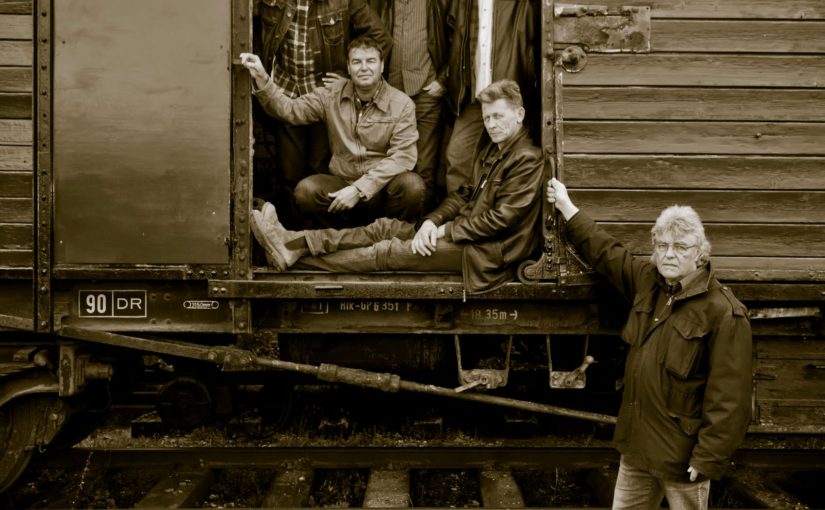When I was a teenager, one of my life’s goals was to hop a freight train. For real. While I did accomplish many other of my reckless dreams (like racking up a few hundred miles of hitchhiking), this one escaped me. Who knows? Maybe it’s not too late.
Of course, I’m not the only person who’s ever romanticized this notion. In fact, there were a giant group of people for whom the practice was a way of life–the hobos. While no one seems to know the origin of the word, it seems to have entered the American vernacular after the Civil War. According to Wikipedia (source of all knowledge in the universe), “With the end of the American Civil War in the 1860s, many discharged veterans returning home began hopping freight trains…With no work and no prospects at home, many decided to travel for free by freight train and try their luck elsewhere.”
Hobos weren’t your garden-variety homeless people. In fact, they had a distinct set of practices, vocabulary, and even an annual convention–which has met the second weekend of April every year since 1900. Apparently, it is a major festival that draws 20,000 tourists every year. I really have to check that out sometime.
Hobos were interesting for lots of reasons, including the fact that they left messages for each other by way of a common set of visual symbols. This code–which they engraved on trees or wrote with chalk or coal–served to provide directions, tips, and warnings to other hobos who might happen along after them.
Some of these symbols included:
- A triangle with hands scrawled near a house meant that the homeowner had a gun.
- A cross signified “angel food,” which meant that a church would feed hobos for free after a service.
- Two interlocked circles represented handcuffs, which meant that hobos were likely to be jailed if apprehended.
But the thing that intrigues most is the Hobo Ethical Code, codified in 1889 at the annual Hobo Convention in St. Louis, Missouri. I mean, who would think that a group of vagrants, known for traveling with nothing more than a bindle stick of their possessions, would develop an ethical code? What’s more, these 15 simple guidelines could serve as a worthy rule book for any of us.
The Hobo Ethical Code of 1889
- Decide your own life, don’t let another person run or rule you.
- When in town, always respect the local law and officials, and try to be a gentleman at all times.
- Don’t take advantage of someone who is in a vulnerable situation, locals or other hobos.
- Always try to find work, even if temporary, and always seek out jobs nobody wants. By doing so you not only help a business along, but ensure employment should you return to that town again.
- When no employment is available, make your own work by using your added talents at crafts.
- Do not allow yourself to become a stupid drunk and set a bad example for locals’ treatment of other hobos.
- When jungling in town, respect handouts, do not wear them out, another hobo will be coming along who will need them as badly, if not worse than you.
- Always respect nature, do not leave garbage where you are jungling.
- If in a community jungle, always pitch in and help.
- Try to stay clean, and boil up wherever possible.
- When traveling, ride your train respectfully, take no personal chances, cause no problems with the operating crew or host railroad, act like an extra crew member.
- Do not cause problems in a train yard, another hobo will be coming along who will need passage through that yard.
- Do not allow other hobos to molest children, expose all molesters to authorities, they are the worst garbage to infest any society.
- Help all runaway children, and try to induce them to return home.
- Help your fellow hobos whenever and wherever needed, you may need their help someday.
- If present at a hobo court and you have testimony, give it. Whether for or against the accused, your voice counts!
That’s a pretty concise, apt set of rules to use to live by, right? Sure is better than the dubious values held by a lot of people I could name. I think it’s time for us to embrace the Hobo Code, consciously and sincerely.
Now, about that freight train…
